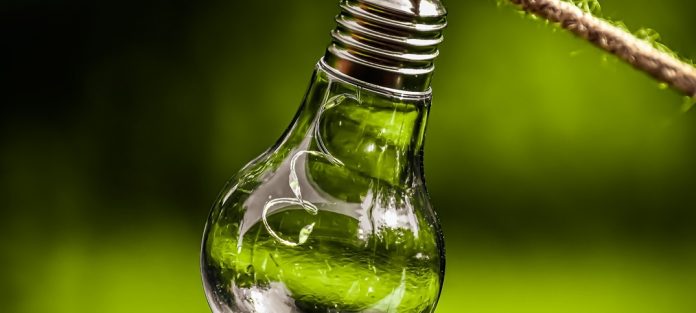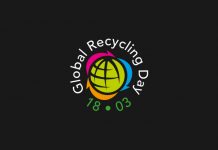The Global Recycling Foundation announced the 10 winners of their Recycling Heroes 2022 award marking Global Recycling Day 18th March. The winners of $ 1000 each are drawn from individuals and business leaders, sole traders, and multinationals who despite continuing hardships have managed to sustain their efforts to promote the value of recycling.
Ranjit Baxi, Founding President of the Global Recycling Foundation, said: “The world has been enduring exceptionally difficult times and we are delighted to have received so many remarkable entries from around the world. Indeed, to recognise the efforts made by a large number of start-ups despite two years of the Coronavirus pandemic, GRF has decided to make 4 additional awards of $250 each.”
The winners:
Schuler Rohstoff GmbH, Germany – Each year recycle about 280,000 tons of scrap – and are particularly proud that they can inspire so many women for our love of scrap. Half of the administrative staff are women empowering women and promoting their interest in the Recycling industry.
Una Mano per la Scuola, Italy – This committee made by parents of students from 6th to 14th years old (students of primary and secondary schools in Inveruno, Milan province, in Italy) is raising awareness on recycling & sustainability matters by organizing, with the support of the Municipality of Inveruno, for students to collect waste in the “Trash Challenge” for recycling as well as promoting planting of Trees by the students.
Vintz Plastic, Kenya – We are the leading plastic recycling company in Kenya recycling at least 25 tonnes of plastic waste per day. Our business model is unique because we promote circular manufacturing economy by making storage tanks and household items using the recycled plastics as the raw material. We place a strong emphasis of working with and training women in the process of collecting and sorting plastic.
Baby On The Move, New Zealand – An innovative effort to divert expired child restraints from going to landfill. Instead, together have created a stewardship solution of recycling car seat thereby reducing the waste which would otherwise be landfilled.
Ecocykle Limited, Nigeria – a youth-led social enterprise that promotes environmental sustainability, ecosystem restoration, the circular economy, and improved public health by providing effective waste management services to low- income communities who lack sustainable waste management options. Over the last two years, the company has overseen the training of more than 2000 young men and women on how to start their own waste recycling enterprises.
Oasis Association, South Africa – since 1952, the organisation has grown to support over 566 intellectually disabled beneficiaries. The organisations activities are all supported through the Recycling and thrift initiatives that fund 56 percent of Oasis annual income providing sustainable employment in recycling.
Brewster Bros, Scotland, UK – a family business centred on the principles of the circular economy turning CDE (concrete, demolition and excavating waste) into quality recycled products which can be sold back into the construction industries, diverting tons of waste from landfill and to create recycled product.
RecycleForce, Indiana, USA – is committed to reducing crime through employment and job training, while improving the environment through (WEE) waste electronics recycling. Since 2006, RecycleForce has safely recycled more than 65 million pounds of electronic waste while providing environmental job training to thousands.
Green Club of Lubanga Primary School, Zambia – Schoolchildren in the Green Club are promoting recycling by collecting waste drink bottles to make litter bins for keeping the school clean. One of the biggest environmental issues in schools is litter. The Green Club members collect used drink bottles littered around the school and community and use them for their Green and Clean school project.
Norwegian Refugee Council, Norway – Working in Bangladesh, to address the existing problem of plastic pollution in refugee camps, thus paving a way for more efficient solid waste management. NRC initiated Producing Shelter Materials from Recycled Plastic project in partnership with Field Ready to recycle the waste plastics produced by the Rohingya refugee community and surrounding host community people, to transform them into safe and sustainable shelter protection products.
The four additional start-up award winners are:
Japheth Sunday, Nigeria – Japheth is reducing environmental pollution in the community with his JETSAR project by converting biowaste to electrical energy that powers the house including appliances, thus providing one answer to meet renewable energy needs in the country.
Precious Plastic, India – Precious Plastic is running a ragpicker co-operative. In this they buy plastic waste from ragpickers. This waste is recycled into plastic granules and sold to plastic product manufacturers. Profits from the sale of granules are distributed equally among the ragpickers helping the local economy.
Circular Shield, Slovenia – supporting sorted collection and recycling of used beverage cardboards, and creating a local, functioning model of circular economy as we return paper products made of regenerated cellulose.
Çelebi Kalkan, Turkey – Celebi, a primary school teacher has been working on STEM education for sustainable development purposes since 2015. She believes in promoting educational awareness and sustainable development goals to support present and future generations who must be equipped not only with technical knowledge and skills, but also with a deeper understanding of the values needed to create a peaceful and sustainable future.
Source: Global Recycling Foundation






